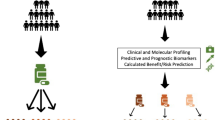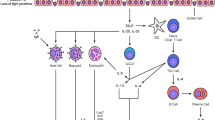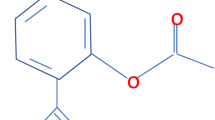Abstract
In this study, we compared the roles of CysLT receptor type 1 (CysLTR1) and leukotriene C4 synthase (LTC4S) gene polymorphisms in two major aspirin-related allergic diseases, aspirin-intolerant asthma (AIA) and aspirin-induced chronic urticaria/angioedema (AICU). CysLTR1-634C>T and LTC4S-444A>C polymorphisms were genotyped and its functional effect on the promoter activity was compared. As in vivo functional study, changes of peripheral mRNA level of CysLTR1 were measured by real-time PCR before and after aspirin challenge. A significant association was found for the CysLTR1 promoter polymorphism and the AIA phenotype compared to AICU (P = 0.015). In U937 cells, the variant genotype reporter construct showed significantly higher promoter activity than the common genotype (P < 0.05). The CysLTR1 mRNA levels increased significantly after aspirin challenge in AIA patients (P = 0.013). In conclusion, the CysLTR1 polymorphism may contribute to develop to the AIA phenotype and be used as a genetic marker for differentiating two major aspirin hypersensitivity phenotypes.



Similar content being viewed by others
References
Simon RA. Adverse respiratory reactions to aspirin and nonsteroidal anti-inflammatory drugs. Curr Allergy Asthma Rep 2004;4:17–24.
Szczeklik A, Stevenson DD. Aspirin-induced asthma: advances in pathogenesis, diagnosis, and management. J Allergy Clin Immunol 2003;111:913–21.
Stevenson DD. Aspirin and NSAID sensitivity. Immunol Allergy Clin North Am 2004;24:491–505.
Szczeklik A. The cyclooxygenase theory of aspirin-induced asthma. Eur Respir J 1990;3:588–93.
Park HS, Cho YH, Kim SS, Kim HY, Nahm DH, Suh CH, et al. Prevalence of sensitivity to aspirin (ASA) and food additives in subjects diagnosed as having intrinsic asthma. J Asthma Allergy Clin Immunol 1998;18:662–71.
Ye YM, Kim JE, Kim SH, Suh CH, Nahm DH, Park HS. Clinical characteristics of chronic urticaria with aspirin sensitivity. J Asthma Allergy Clin Immunol 2005;25:194–9.
Dahlen SE, Malmstrom K, Nizankowska E, Dahlen B, Kuna P, Kowalski M, et al. Improvement of aspirin-intolerant asthma by montelukast, a leukotriene antagonist: a randomized, double-blind, placebo-controlled trial. Am J Respir Crit Care Med 2002;165:9–14.
Obase Y, Shimoda T, Tomari SY, Mitsuta K, Kawano T, Matsuse H, et al. Effects of pranlukast on chemical mediators in induced sputum on provocation tests in atopic and aspirin-intolerant asthmatic patients. Chest 2002;121:143–50.
Mastalerz L, Setkowicz M, Sanak M, Szczeklik A. Hypersensitivity to aspirin: common eicosanoid alterations in urticaria and asthma. J Allergy Clin Immunol 2004;113:771–5.
Nettis E, Di PR, Ferrannini A, Tursi A. Tolerability of Rofecoxib in patients with cutaneous adverse reactions to nonsteroidal anti-inflammatory drugs. Ann Allergy Asthma Immunol 2002;88:331–4.
Zembowicz A, Mastalerz L, Setkowicz M, Radziszewski W, Szczeklik A. Safety of cyclooxygenase 2 inhibitors and increased leukotriene synthesis in chronic idiopathic urticaria with sensitivity to nonsteroidal anti-inflammatory drugs. Arch Dermatol 2003;139:1577–82.
Holgate ST, Peters-Golden M, Panettieri RA, Henderson WR. Roles of cysteinyl leukotrienes in airway inflammation, smooth muscle function, and remodeling. J Allergy Clin Immunol 2003;111:S18–36.
Funk CD. Prostaglandins and leukotrienes: advances in eicosanoid biology. Science 2001;294:1871–5.
Foegh ML, Hecker M, Ramwell PW. The eicosanoids: prostaglandins, thromboxanes, leukotrienes, and related compounds. In: Katzung BG, editor. Basic and clinical pharmacology. 5th ed. Connecticut: Appleton and Lange; 1998. p. 304–18.
Sanak M, Simon HU, Szczeklik A. Leukotriene C4 synthase promoter polymorphism and risk of aspirin-induced asthma. Lancet 1997;350:1599–600.
Sanak M, Pierzchalska M, Bazan-Socha S, Szczeklik A. Enhanced expression of the leukotriene C4 synthase due to overactive transcription of an allelic variant associated with aspirin-intolerant asthma. Am J Respir Cell Mol Biol 2000;23:290–6.
Mastalerz L, Setkowicz M, Sanak M, Rybarczyk H, Szczeklik A. Familial aggregation of aspirin-induced urticaria and leukotriene C synthase allelic variant. Br J Dermatol 2006;154:256–60.
Lynch KR, O’Neill GP, Liu Q, Im DS, Sawyer N, Metters KM, et al. Characterization of the human cysteinyl leukotriene CysLT1 receptor. Nature 1999;399:789–93.
Kim SH, Oh JM, Kim YS, Palmer LJ, Suh CH, Nahm DH, et al. CysLTRI promoter polymorphism is associated with aspirin-intolerant asthma in males. Clin Exp Allergy 2006;36:433–9.
Penrose JF, Spector J, Baldasaro M, Xu K, Boyce J, Arm JP, et al. Molecular cloning of the gene for human leukotriene C4 synthase: organization, nucleotide sequence, and chromosomal localization to 5q35. J Mol Chem 1996;271:11356–61.
Kawagishi Y, Mita H, Taniguchi M, Maruyama M, Oosaki R, Higashi N, et al. Leukotriene C4 synthase promoter polymorphism in Japanese patients with aspirin-induced asthma. J Allergy Clin Immunol 2002;109:936–42.
Van Sambeek R, Stevenson DD, Baldasaro M, Lam BK, Zhao J, Yoshida S, et al. 5′ flanking region polymorphism of the gene encoding leukotriene C4 synthase does not correlate with the aspirin-intolerant asthma phenotype in the United States. J Allergy Clin Immunol 2000;106:72–6.
Choi JH, Kim SH, Bae JS, Yu HL, Suh CH, Nahm DH, et al. Lack of an association between a new LTC4S promoter polymorphism (-1702G>A) and aspirin-intolerant asthma (AIA) in a Korean population. Tohoku J Exp Med 2006;208:49–56.
Kim SH, Choi JH, Holloway JW, Suh CH, Nahm DH, Ha EH, et al. Leukotriene-related gene polymorphisms in patients with ASA-induced urticaria and ASA-intolerant asthma: differing contributions of ALOX5 polymorphism in Korea population. J Korean Med Sci 2005;20:926–31.
Sousa AR, Parikh A, Scadding G, Corrigan CJ, Lee TH. Leukotriene-receptor expression on nasal mucosal inflammatory cells in aspirin-sensitive rhinosinusitis. N Engl J Med 2002;347:1493–9.
Acknowledgement
This study was supported by a grant from the Korea Health 21 R&D Project of the Ministry of Health and Welfare, Republic of Korea (03-PJ10-PG13-GD01-0002 and A050571).
Author information
Authors and Affiliations
Corresponding author
Rights and permissions
About this article
Cite this article
Kim, SH., Yang, EM., Park, HJ. et al. Differential Contribution of the CysLTR1 Gene in Patients with Aspirin Hypersensitivity. J Clin Immunol 27, 613–619 (2007). https://doi.org/10.1007/s10875-007-9115-x
Received:
Accepted:
Published:
Issue Date:
DOI: https://doi.org/10.1007/s10875-007-9115-x




